Ditapis dengan
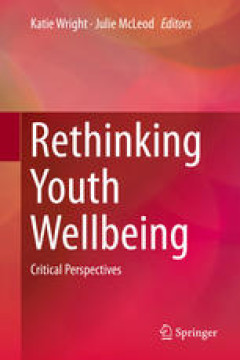
Rethinking Youth Wellbeing: Critical Perspectives
This volume offers a critical rethinking of the construct of youth wellbeing, stepping back from taken-for-granted and psychologically inflected understandings. Wellbeing has become a catchphrase in educational, health and social care policies internationally, informing a range of school programs and social interventions and increasingly shaping everyday understandings of young people. Drawing …
- Edisi
- -
- ISBN/ISSN
- 978-981-287-187-9
- Deskripsi Fisik
- -
- Judul Seri
- -
- No. Panggil
- -
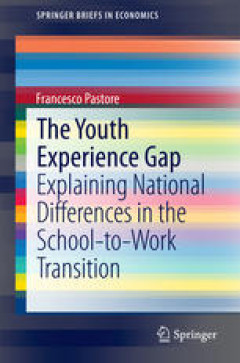
The Youth Experience Gap: Explaining National Differences in the School-to-Wo…
The current economic and financial crisis has further exacerbated the situation for young people in many advanced economies. Observers are divided as to the optimal design of youth employment policy. Liberalists believe that the market itself should address youth disadvantages. More flexible labor markets should also guarantee greater labor turnover, including temporary work, so as to allow you…
- Edisi
- -
- ISBN/ISSN
- 978-3-319-10195-8
- Deskripsi Fisik
- -
- Judul Seri
- -
- No. Panggil
- -

Exercise prescription : physiological foundations : a guide for health, sport…
- Edisi
- -
- ISBN/ISSN
- 9780702032769
- Deskripsi Fisik
- -
- Judul Seri
- -
- No. Panggil
- -
- Edisi
- -
- ISBN/ISSN
- 9780702032769
- Deskripsi Fisik
- -
- Judul Seri
- -
- No. Panggil
- -
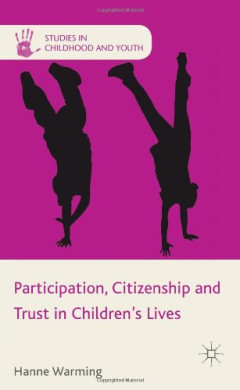
Participation, Citizenship and Trust in Children's Lives
This book is a pioneering study of trust dynamics in children's lives that develops a new theoretical angle for studying children's participation and citizenship. Trust and mistrust are concepts that often figure in sociological research on childhood but despite their significance they remain under-theorized. Drawing on a wealth of empirical evidence from a range of institutional and cultural c…
- Edisi
- -
- ISBN/ISSN
- 9780230302648
- Deskripsi Fisik
- -
- Judul Seri
- -
- No. Panggil
- -

Sport and international development
- Edisi
- -
- ISBN/ISSN
- 9780230584402
- Deskripsi Fisik
- -
- Judul Seri
- -
- No. Panggil
- -
- Edisi
- -
- ISBN/ISSN
- 9780230584402
- Deskripsi Fisik
- -
- Judul Seri
- -
- No. Panggil
- -
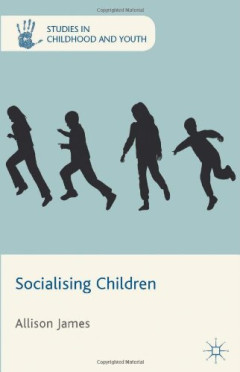
Socialising Children
Drawing on children's narratives about their everyday life this book explores how children understand the process of socialization as an embodied, biographical experience at home, at school and in the neighbourhood. Through close analysis of what children have to say, the book shows how children actively learn from and contribute to the mundane practices and interactions of everyday social life…
- Edisi
- -
- ISBN/ISSN
- 9780230300330
- Deskripsi Fisik
- -
- Judul Seri
- -
- No. Panggil
- -

Sport Management
- Edisi
- -
- ISBN/ISSN
- 9780080943206
- Deskripsi Fisik
- -
- Judul Seri
- -
- No. Panggil
- -
- Edisi
- -
- ISBN/ISSN
- 9780080943206
- Deskripsi Fisik
- -
- Judul Seri
- -
- No. Panggil
- -

Coaching youth football
Endorsed by American Youth Football, the largest football organization in the country, Coaching Youth Football is a great introduction to teaching youth the valuable skills they need to play football.
- Edisi
- -
- ISBN/ISSN
- 978-0-7360-8566-3
- Deskripsi Fisik
- -
- Judul Seri
- -
- No. Panggil
- -
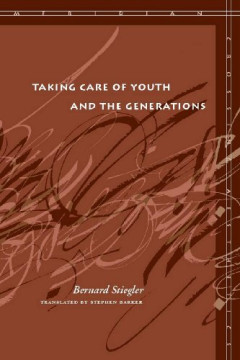
Taking Care of Youth and the Generations
Bernard Stiegler works systematically through the current crisis in education and family relations resulting from the mesmerizing power of marketing technologies. He contends that the greatest threat to social and cultural development is the destruction of young people's ability to pay critical attention to the world around them. This phenomenon, prevalent throughout the first world, is the cal…
- Edisi
- -
- ISBN/ISSN
- 9780804762731
- Deskripsi Fisik
- -
- Judul Seri
- -
- No. Panggil
- -
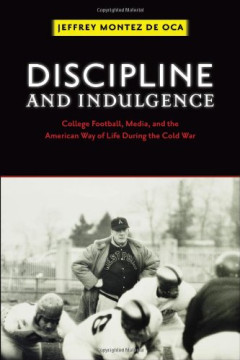
Discipline and Indulgence: College Football, Media, and the American Way of L…
The early Cold War (1947–1964) was a time of optimism in America. Flushed with confidence by the Second World War, many heralded the American Century and saw postwar affluence as proof that capitalism would solve want and poverty. Yet this period also filled people with anxiety. Beyond the specter of nuclear annihilation, the consumerism and affluence of capitalism’s success were seen as tu…
- Edisi
- -
- ISBN/ISSN
- 9780813561271
- Deskripsi Fisik
- -
- Judul Seri
- -
- No. Panggil
- -
 Karya Umum
Karya Umum  Filsafat
Filsafat  Agama
Agama  Ilmu-ilmu Sosial
Ilmu-ilmu Sosial  Bahasa
Bahasa  Ilmu-ilmu Murni
Ilmu-ilmu Murni  Ilmu-ilmu Terapan
Ilmu-ilmu Terapan  Kesenian, Hiburan, dan Olahraga
Kesenian, Hiburan, dan Olahraga  Kesusastraan
Kesusastraan  Geografi dan Sejarah
Geografi dan Sejarah